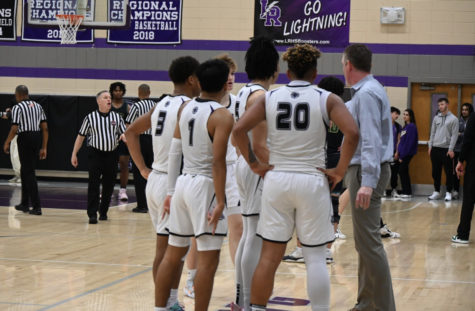Hate is Not a Laramie Value
“The Laramie Project” by the Long Reach Theatre Arts
Cher once said, “Hate crimes are the scariest thing in the world because these people really believe what they’re doing is right.”
Imagine a man being beaten and then held against a fence for no other reason than the fact that he is gay.
The Long Reach Theatre Arts performed The Laramie Project on November 2, 8, and 9 at 7pm and on November 3 at 2pm.
The Laramie Project is a play about the true events of a gay man, Matthew Sheppard, who was tortured and brutally beaten by two men, Aaron McKinney and Russell Henderson, on October 6, 1998. Matthew was then left to die on a wooden fence near Laramie. He was taken to Poudre Valley Hospital in Fort Collins, Colorado, but he passed away due to head injuries six days later.
Mrs. Blasko, the director, wrote in her director’s note that the play “is a piece of documentary theatre written by Moisés Kaufman and The Tectonic Theatre Project.” As Mrs. Blasko explained, The Tectonic Theatre Project is “a group of actors from New York who conducted interviews with the citizens of Laramie following the brutal murder of Matthew Sheppard.”
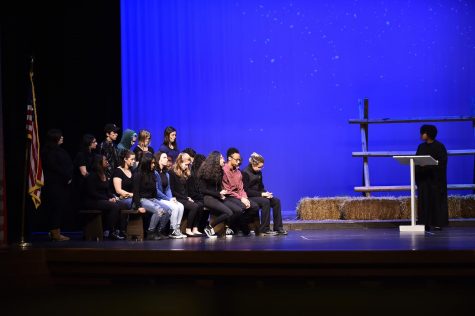
Ryan Harris, a senior, stated that the play was “very emotional and difficult to watch, but it was done in a way where you couldn’t help but get invested and feel the impact of the actions and dialogue.”
Junior Leslie Deiss mentioned while a character played by Eli Kuperman had jokes to lighten the mood, the overall tone of the play was serious and emotional, as it should have been.
Due to the subject matter of the play, Mr. Wasilewksi mentioned during the daily announcements that it was recommended for children ages thirteen and up. Harris said, “The language of the play was something of a PG-13 movie’s extent as there was swearing but also the usage of slurs [and] details of violence.”
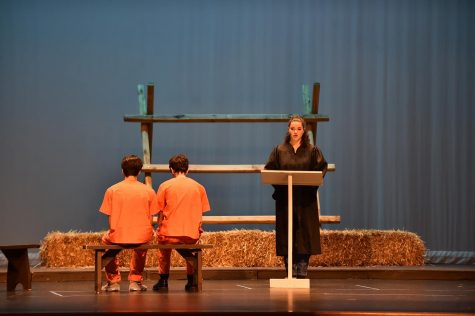
Due to the content of the play, a table was set up with resources to provide help for anyone who needed it after seeing the play.
Additionally, there was a post-show discussion during third period after the last night of the play. The discussion included those who were part of the play, including Mrs. Blasko and the actors, as well as audience members and Mr. Smart.
The post-show discussion focused on the events of the play and connections to reality and other social issues. One part of the discussion was about how the situation would be different if the victim had been a minority. The students mentioned factors that would make the situation different such as race, sexual identity, and gender.
During the discussion, Mrs. Blasko mentioned that putting on the play took courage. “When I direct a play or a musical, I live in that story for months before it goes into rehearsal and then a few more months during the rehearsal with the cast and crew.” In order to recreate it for the audience, she stated that she tries “to imagine what it would be like to live in that setting.”
She elaborated, “It is hard to live in Laramie in the late 1990’s where this crime occurred. I can’t imagine what those parents went through, as well as the people who lived in the town. That is why it took me a long time to be able to produce a play about homophobia, hate, and healing.”
Even though it was difficult to put on a play about a heavy topic, it is also important that The Laramie Project was included as one of our school’s plays. Mrs. Blasko said, “The Laramie Project shows what can happen to a town who chooses to “live and let live” or in other words, merely tolerate and not accept everyone for who they are.”
Deiss said that after the play, she was in tears and had chills down her arms because it was so shocking and moving. “I left with new eyes about how homophia can be masked and how hatred is the most evil thing.”
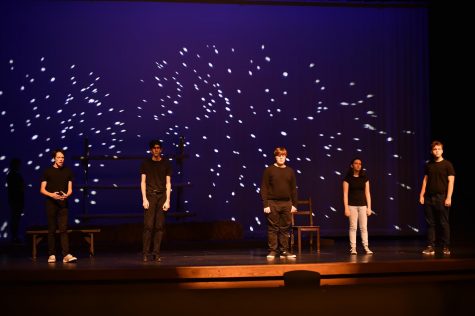
Harris experienced a similar reaction. After the play, she discussed with her friends and the cast that “to see a play based on events from about 20 years ago, and to see that little to nothing has changed in the attitudes, speech, or beliefs of most people, was expected yet still very disheartening.”
And even though it was painful, Deiss added that she was glad she went because “it’s just one of those things you just have to hear. Everyone should hear the message of The Laramie Project as it applied to the past, it applies now, and it’ll continue to apply in the future.”
How to Report a Hate Crime (not necessarily in order)
Report it to the police.
It is important that the police know about the crime, regardless of whether you were involved or if you were a witness. If you believe the crime was motivated by bias, then make sure to mention that.
Write down the details of crime.
If you know the offender, write down the name. If not, write details that will be useful in identifying him/her such as the general appearance, height, age, race, etc. of the person.
Get support.
Experiencing or witnessing a hate crime can have a great impact on any individual. Go to a trusted friend, family member, or professional to get help. If necessary, seek medical help immediately.

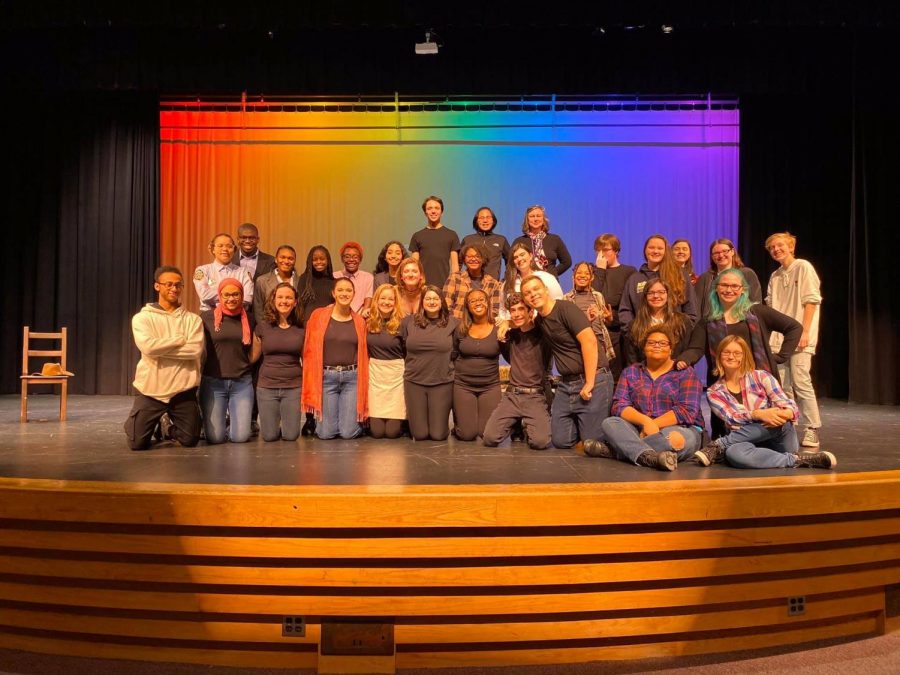
![Long Reach Boosters Club. (March 24, 2023 - 11:33pm). [Digital Image]. Long Reach Has Talent Show Spring 2023. Facebook, Retrieved April 17, 2023 from https://www.facebook.com/longreachboosters/posts/pfbid03kN5BKQj5TDefz1rtVZ5fTBBhjwA39UPPd8GctyMgFvY7B4RihH4rY4EqE7xPwikl.](https://lrhslightningflash.com/wp-content/uploads/2023/05/LR-Talent-Show-3-475x316.jpg)
